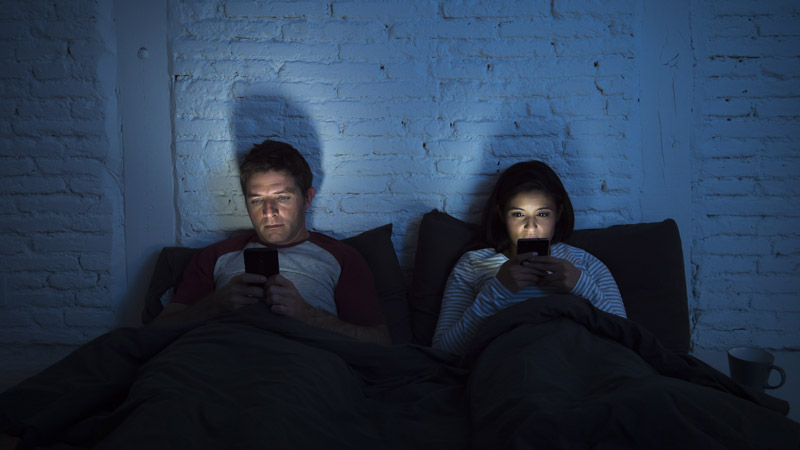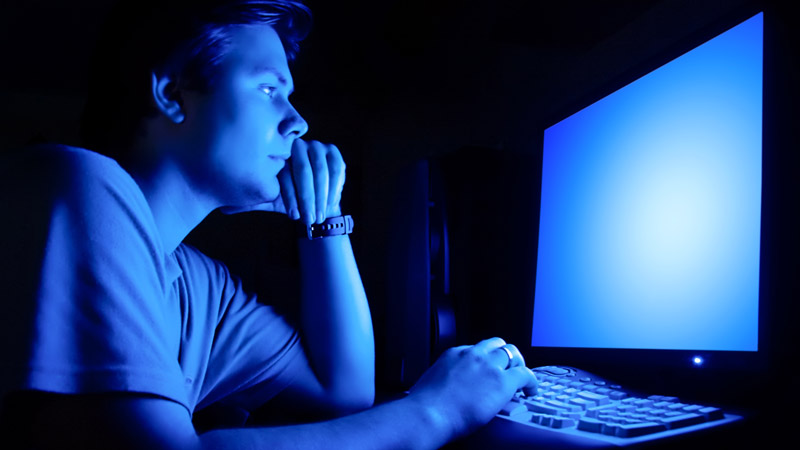
Electronic devices are optimized for distraction. Between addictive apps and never-ending notifications, we struggle to maintain our focus throughout the day. However, these devices are perhaps most dangerous after the sun goes down.
Like most animals, human behavior is governed by an internal clock, or circadian rhythm. While each person's sleep-wake cycle may vary, the general mechanism is the same. As daylight dwindles and the sun begins to set, your pineal gland starts to produce melatonin. As the night progresses, levels of this natural hormone continue to build and help you drift off to sleep. Melatonin production remains high until the early morning hours, when light from the rising sun slows and eventually halts your body's production of the hormone until you rise from your slumber.
The external trigger of sunlight is necessary to maintain a healthy sleep cycle. But the foreign presence of bright light from our electronic devices threatens the delicate balance of our natural circadian rhythms.

Between light bulbs, televisions, and smartphone screens, we continually bombard ourselves with intense light into the late hours of the night. Exposure to this unnatural stimulus tricks the body into thinking that night is day and interrupts the production of melatonin. Without this sleep-inducing hormone, there is no signal for your body to wind down and prepare for sleep. It can take hours for your internal clock to recalibrate and begin the process all over again.
Smartphones are perhaps the biggest culprit in disrupting our sleep-wake cycle. Phone makers pride themselves on making brighter, more vibrant screens with each new model. But in order to achieve these visually stunning results, many of these screens output a considerable amount of light in the blue spectrum. This high frequency blue light has been scientifically shown to reduce melatonin production more than any other type of light. In addition, the portability and size of smartphones encourages us to hold them close to our faces, further intensifying the harsh light from their screens.
Doctors typically recommend two simple changes to your nightly routine to minimize the disruptive effects of artificial light.
- First and foremost, it is strongly advised that you refrain from all use of electronics approximately one hour before bedtime. This will give your mind a chance to unplug and relax and allow your body's production of melatonin to proceed uninterrupted.
- Second, limit your exposure to blue light after dark. Opt for "warm white" or "soft white" LED light bulbs or incandescent bulbs, which emit a yellowish glow, instead of "bright white" LED light bulbs, which cast more light from the blue spectrum. Consider enabling night mode on your phone, which reduces the output of blue light from your screen.
